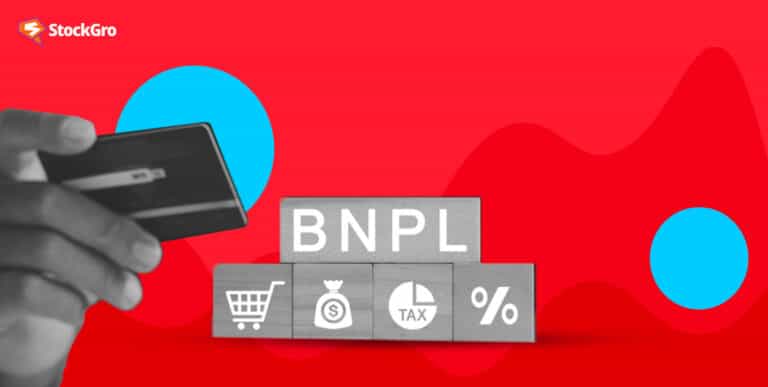
Having to cope with several interest rates and payment deadlines can make managing multiple loans quite difficult. The Reserve Bank of India has released data showing that the number of credit cards issued has increased to 96 million as of November 2023. This shows that managing debt is becoming a major issue for a number of individuals.
So, what is the course of action for people who find it difficult to meet their financial responsibility? The answer lies in a strategic approach known as debt consolidation, designed to simplify your debt repayment by focusing on a single, manageable loan. Keep reading to know more.
What is debt consolidation?
Debt consolidation loans in India is a strategy where you consolidate multiple loans into one, ideally with a more affordable interest rate and monthly payment schedule. It’s a practical approach for those juggling multiple payments, such as credit card balances, personal loans, or educational loans. To better understand how consolidation will affect your monthly payments, you can use a personal loan calculator to estimate the new EMI based on the consolidated loan amount, interest rate, and tenure.
Consolidating your debt might help you handle it more easily and even save money over time by lowering the total amount of interest you pay. This method can involve securing a new loan to pay off various debts, thereby leaving you with a single, streamlined payment to handle each month.
Types of debt consolidation
There are various types of debt consolidation, and each is appropriate for a particular set of circumstances. Here’s a brief overview:
- Personal loans: A personal loan is a common method for consolidating debt. You can borrow a fixed amount from banks or online lenders and use it to pay off multiple debts.
- Balance transfer credit cards: You can transfer your current credit card debt to a new card with a reduced interest rate using these cards. As a result, you may pay less interest.
- Home equity loans: If you are a homeowner, you can borrow against the equity in your home to consolidate your debts. Because the loan is secured by your property, these loans usually have lower interest rates. There is a risk, though: you can lose your house if you don’t make your payments.
Choosing the right type of debt consolidation loan depends on your specific financial situation, including your debts’ total amount, your credit score, and whether you own a home. It’s important to consider these factors carefully to select the best option for consolidating your debts.
You may also like: Debt management: Advanced strategies for paying off debt quickly
Debt consolidation loans eligibility
Eligibility criteria for debt consolidation loans can differ across banks and financial institutions, but some common requirements must be met:
- Credit score: Having a high credit score—typically 700 or higher—is essential because it shows potential lenders that you pose little risk as a borrower.
- Stable income: Proof of a stable income is required to assure lenders you can afford the monthly loan repayments.
- Debt-to-income ratio: It’s better to have a low ratio of debt-to-income since it indicates that you’re managing your debts well relative to your income.
- Employment history: A steady employment history may be needed to demonstrate financial stability and reliability to lenders.
- Collateral: For some debt consolidation loans, especially secured ones, collateral like a home might be necessary.
- Age: The applicant must be of legal age and a citizen or lawful permanent resident of the nation.
These are general debt consolidation loans eligibility and specific requirements can vary. Meeting these criteria does not guarantee loan approval, as lenders will conduct a comprehensive review of your financial situation, including your credit history and current debts.
Also read: Credit history: What is it and why it matters?
The process of debt consolidation
The process of debt consolidation involves a few clear steps designed to streamline your financial obligations into one manageable loan. Here’s how it works:
- Application: First, you need to apply for a debt consolidation loan or a balance transfer credit card, depending on the route you choose. It’s crucial that the credit limit or loan amount is sufficient to cover all your existing debts.
- Approval and payment: Once approved, the lender or credit card company directly pays off your existing debts.
- Repayment: After consolidating your debts, you’ll be responsible for just a single monthly payment. It is essential that you make this payment on time and in full if you want to improve your financial situation.
For example, Rahul has accumulated ₹3,00,000 in credit card debt, facing interest rates between 20% to 30%. Deciding to tackle this burden more efficiently, he looks into debt consolidation to simplify his payments and reduce the interest rates. After comparing his options, he secures a personal loan at a more favourable interest rate of 12%.
He pays off his credit card debt with the loan amount after it is approved. Now, instead of multiple debts, Rahul has a single debt of ₹3,00,000 from the personal loan. With the reduced interest rate and a structured repayment schedule, he is in a better position to save on interest costs and focus his efforts on repaying the consolidated loan.
Potential risks in choosing consolidating debt
- Risk of accumulating more debt: There’s a temptation to use the freed-up credit to spend more, potentially worsening your financial situation instead of improving it.
- Fees and additional costs: Several expenses, such as credit card balance transfer fees or loan origination fees, may be associated with debt consolidation. These costs can add up and should be factored into your decision.
- Collateral at risk: If you use a secured loan, like a home equity loan, for consolidation, your home becomes collateral. Failing to keep up with payments could lead to losing your home. To evaluate how this would impact your finances, you can use a home loan calculator to estimate monthly payments and assess whether you can comfortably manage the loan.
- Not a fix for all debt types: Consolidation usually works best for debts that are not secured. It might not be the best solution for secured debts, student loans, or tax debts, which could have specific repayment plans or benefits that would be forfeited upon consolidation.
- Impact on credit score: Initially, consolidating debts might cause a temporary dip in your credit score due to the credit checks required by new loan applications and the closing of old accounts.
Considerations before consolidating debt
Before diving into debt consolidation, there are several critical factors to consider to ensure it’s the right move for your financial health:
Check your credit score: An important factor in deciding the interest rate on a consolidation loan is your credit score. A higher credit score could secure you more favourable loan terms, making the consolidation more beneficial financially.
Interest rates and fees: It’s crucial to evaluate the interest rates and any other costs associated with a consolidation loan. The goal is to ensure that the new loan’s rate is lower than the average rate of your current debts, making the consolidation financially worthwhile.
Loan tenure and repayment terms: Consider the repayment schedule and terms of the consolidation loan. While a longer loan term can lower your monthly payments, it might increase the total interest paid over the loan’s lifetime.
Commitment to financial discipline: Consolidating debt requires a commitment to avoid accruing new debt. Maintaining a budget and exercising prudent spending is key to successfully managing your finances post-consolidation.
You may also like: Mastering the maze: Your pathway out of student loan debt
Bottomline
Debt consolidation loans in India are an opportunity to streamline your debts into a more manageable form, potentially saving on interest and simplifying payments.
However, its success requires a disciplined approach to spending and a thorough assessment of your financial situation to ensure it aligns with your long-term financial goals.

